I am trying to solve an D-equation and do not know y[0], but I know y[x1]=y1.
I want to solve the DSolve only in the relevant xrange x=[x1, infinitny].
How could it work?
Attached the example that does not work
dsolv2 = DSolve[{y'[x] == c*0.5*t12[x, l2]^2 - alpha*y[x], y[twhenrcomesin] == zwhenrcomesin, x >= twhenrcomesin}, y[x], x]
dsolv2 = Flatten[dsolv2]
zsecondphase[x_] = y[x] /. dsolv2[[1]]
I am aware that DSolve does not allow the inequality condition but I put it in to explain you what I am looking for (t12[x,l2] will give me a value only depending on x since l2 is known).
EDIT
t12[j24_, lambda242_] := (cinv1 - cinv2)/(cop2 - cop1 + (h2*lambda242)*E^(p*j24));
cinv1 = 30; cinv2 = 4; cinv3 = 3; h2 = 1.4; h3 = 1.2; alpha = 0.04; z = 50; p = 0.06; cop1 = 0; cop2 = 1; cop3 = 1.3; teta2 = 0.19; teta3 =0.1; co2 = -0.6; z0 = 10;l2 = 0.1;

